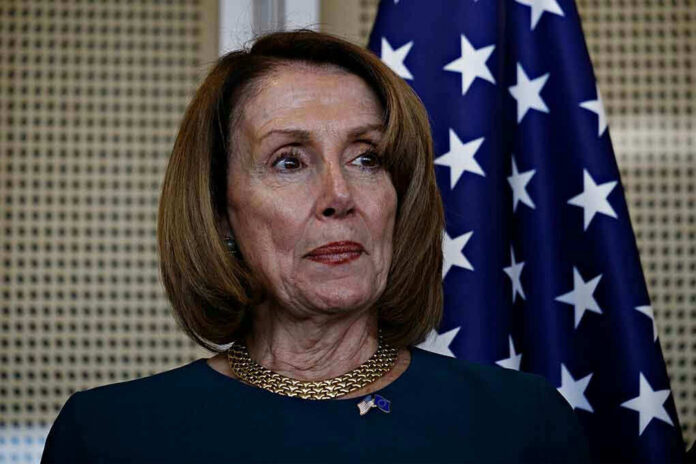
Scott Wiener’s candidacy for Nancy Pelosi’s congressional seat in 2026 marks a significant shift in the Democratic landscape, raising questions about the future of the party.
Story Highlights
- Scott Wiener is running for Nancy Pelosi’s congressional seat in 2026, breaking a previous pledge to wait for her retirement.
- Wiener’s move reflects broader tensions between establishment Democrats and insurgent progressives.
- Pelosi, at 85, has not announced her reelection plans, amidst declining polling numbers.
Wiener’s Bid for Change
Scott Wiener, a California state senator known for his progressive stance on issues like housing and LGBTQ+ rights, is entering the 2026 Democratic primary to challenge incumbent Nancy Pelosi for her San Francisco congressional seat. This decision comes after polling data indicated a waning support for Pelosi and a rising favorability for Wiener and other progressive candidates like Saikat Chakrabarti. By choosing to run, Wiener has accelerated his political timetable, previously suggesting he would wait until Pelosi retired.
Look at this news article from The Daily Caller: REPORT: America’s Most Sexually Degenerate Lawmaker Scott Wiener Is Challenging Nancy Pelosi In A Primary. https://t.co/20AIkKaVea
Pervert weiner should be locked up.
— Johnny j johnson (@John34777J) October 18, 2025
The competitive primary underscores the growing divide within the Democratic Party, highlighting a generational and ideological shift. Pelosi, a formidable figure in U.S. politics, has yet to announce whether she will seek reelection, leaving the field open to speculation. Wiener’s entry into the race is indicative of a broader desire for new leadership within the party, aligning with national trends towards progressive policies.
The Battle for Democratic Ideals
Wiener’s candidacy is more than just a political move; it represents a struggle over the future direction of the Democratic Party. As Wiener prepares his campaign, he is positioning himself against both establishment figures like Pelosi and progressive challengers such as Chakrabarti, who argue for a departure from traditional party approaches. Wiener’s legislative track record, especially in areas like housing reform, is seen as both a strength and a point of contention, particularly among conservative critics who view his policies as overly progressive.
Saikat Chakrabarti, a tech millionaire and former chief of staff to Alexandria Ocasio-Cortez, has also entered the race, touting a strong anti-establishment message. Chakrabarti’s campaign, bolstered by significant self-funding, challenges both the moderate and progressive factions within the party. This dynamic adds to the complexity of the primary, as voters in San Francisco weigh their options amidst shifting political allegiances.
Future Implications for the Democratic Party
The outcome of this primary will have significant implications for the Democratic Party at both the local and national levels. A win for Wiener could signal a shift towards more progressive policies within the party, potentially influencing future legislative agendas. On the other hand, Pelosi’s potential reelection could reinforce the establishment’s grip on the party, albeit with increasing pressure to adapt to new political realities.
This race is emblematic of the broader tensions within the Democratic Party, as it grapples with generational turnover and ideological realignment. The primary promises to be a contentious and expensive affair, drawing national attention and potentially reshaping the political landscape in San Francisco and beyond.
Sources:
Scott Wiener Running for Congress Against Nancy Pelosi
Chabria Column: Scott Wiener vs. Nancy Pelosi
Leather-Wearing Democratic State Lawmaker
Scott Wiener Challenges Nancy Pelosi












